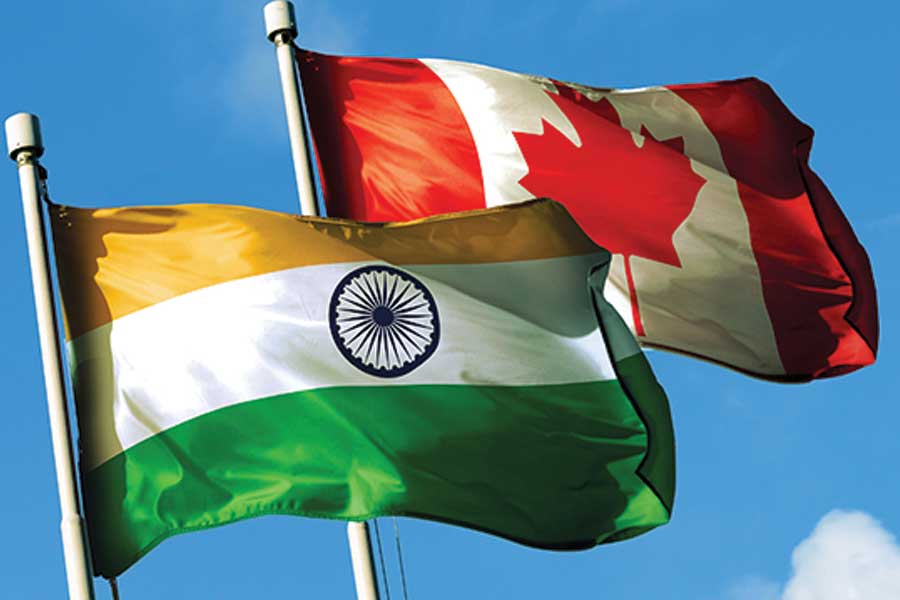Amid the current India-Canada diplomatic standoff, a leading university here has sought to reassure the student community and underscored its commitment to supporting its wellbeing, while noting that India’s suspension of visa processing will hinder face-to-face connection.
"We know that many members of the University of Toronto community are watching relations between the governments of Canada and India with concern. The situation is evolving rapidly, causing uncertainty and stress, and we do not yet have answers to many of the pressing questions it raises,” Vice-President International, University of Toronto, Professor Joseph Wong told PTI in a statement here.
Wong said that the University of Toronto is “proud to be home to more than 2,400 international students from India who enrich our classrooms and campus life”, and many more students, faculty, staff, librarians and alumni with ties to India.
“We want to assure all impacted members of our community – and in particular international students – that you are welcome here and we are deeply committed to supporting your wellbeing,” he said.
Wong added that the University is committed to its “longstanding partnerships” in India that support academic collaborations in a wide range of areas and provide invaluable global learning opportunities for its students.
“We look forward to continuing and deepening these relationships, aligned with our mutual goal of making a difference locally and globally. In the short term, the suspension of visa processing for travellers from Canada will hinder face-to-face connection, but we will continue to build these relationships through online interactions.” Wong said the university will monitor the impacts of the developing situation between India and Canada on the University of Toronto community and “provide updates as we learn more.” India and Canada are embroiled in a diplomatic standoff following allegations by Prime Minister Justin Trudeau in the Canadian Parliament last month that “Canadian security agencies have been actively pursuing credible allegations of a potential link between agents of the government of India and the killing” of Khalistani extremist Hardeep Singh Nijjar on Canadian soil on June 18 in British Columbia, a charge angrily rejected by New Delhi as "absurd" and “motivated".
Earlier last week, India asked Canada to withdraw several dozen diplomats from its missions amid the escalating diplomatic row that erupted following Trudeau's allegation.
India has asserted that Canada must reduce its diplomatic presence in the country to achieve parity in strength and alleged that some of the Canadian diplomats are involved in interfering in New Delhi's internal matters, signalling continuing slide in the ties between the two nations.
External Affairs Ministry spokesperson Arindam Bagchi has said discussions on the modalities to arrive at mutual diplomatic presence are going on and gave clear indication that India will not review its position on the issue.
India has also “suspended till further notice" its visa services in Canada.
Bagchi has said that the Indian High Commission and Consulates in Canada are facing security threats.
“This has disrupted their normal functioning. Accordingly, our High Commission and Consulates are temporarily unable to process visa applications. We will be reviewing the situation on a regular basis,” he has said.
According to ICEF Monitor, a market intelligence resource for the global education industry, there were 320,000 Indian students with active study permits at the end of December 2022, a growth of 47 per cent over the previous year.
“Indian students accounted for nearly four out of every ten foreign students in Canada as of the end of 2022,” ICEF Monitor said.
In 2022, a total of 226,450 Indian students arrived in Canada to pursue education, making India the top source country of new international students entering the North American nation last year, according to available data.
According to global education search platform Erudera, the total number of international students in all education levels in Canada is 807,750, including higher education. Of this total of 807,750 study permit holders, 551,405 received a study permit in 2022 in Canada. Erudera data said that India has the most study permit holders in 2022 in Canada, with 226,450 students.
The University of Toronto said on its website that it has a long history of collaboration with students and faculty with ties to India. “The Greater Toronto Area (GTA) is home to more than 500,000 Indo-Canadians,” it said.
Except for the headline, this story has not been edited by The Telegraph Online staff and has been published from a syndicated feed.











